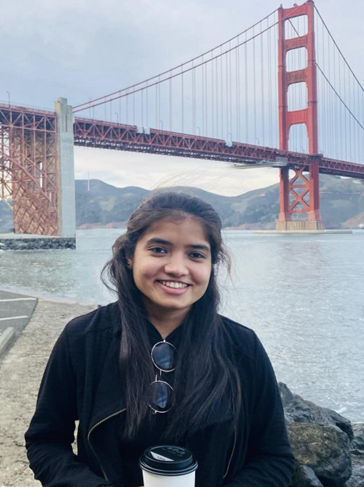Behind the Design: A Conversation with a UX Researcher
Suchismita Naik, a BITS Pilani (Goa, ‘13) graduate with degrees in MSc. Mathematics and B.E. Electronics and Instrumentation transitioned her career to UX research and design. She obtained her Master's from the National Institute of Design (NID), Bangalore, and thereafter, pursued a PhD at Purdue University. With her expertise, she contributed to top organizations, including Xerox Research Centre (now Conduent Lab) and 1mg.

How did your time at BITS help you shape your career in this field? Were there any professors or courses that assisted you on this journey?
At BITS, I learned resilience and developed a flexible mindset that aligned with my interest in design. The math courses, particularly graphs and networks, fascinated me and sharpened my logical visualization skills. This foundation proved invaluable during my NID interviews, where I applied theory to real-life scenarios, bridging my learning experiences between BITS and NID.
What exactly happens in UX design research? What does your day-to-day work look like?
It depends on which area you're working in if you are enhancing something existing or working on something yet to be implemented. Beginners might be more comfortable working with existing products. But, in a senior role, you would be more involved with the strategy related to a new product, for, e.g., products related to AI and LLMs; it's a new thing altogether.
Did you plan to pursue design during your time at BITS? How did you first explore the field, and did your peer group play a role?
Entering BITS, I was unaware of the design field, especially in the absence of social media. Joining clubs like Kala allowed me to explore creative ideas through side projects like website and logo design, fostering an environment of open communication and learning. The diverse peer group at BITS played a crucial role in pushing, inspiring, and encouraging me to pursue endeavors I wouldn't have considered alone.
How should beginners explore this field, and which design area do they want to explore?
Most articles and YouTube videos discuss tools, but design is more than that. Design is more about problem thinking, how you break a problem into smaller chunks to work around things and have an output that can make a difference. It is more about how you should approach design rather than just looking into how you can make use of tools.
How do you maintain your work-life balance? Have you ever reached a point where you felt like you needed to step back and re-evaluate your priorities?
Maintaining a hobby or side project alongside my main work helps me clear my mind and maintain my well-being. Whether it's working out, spending time with loved ones, or pursuing long-distance friendships, these activities are crucial for both physical and mental health. In 2019, pre-COVID, I reached a pivotal reflection point that allowed me to discern the direction of my career.
Reducing youth's digital time to combat misinformation sparks discussions. Could this increase demand for user-friendly interfaces, thus boosting the UX industry?
The evolving landscape of product usage raises important considerations. While the intended purpose of a product may not align with its actual use, the emergence of AI and advanced technology brings new challenges, particularly regarding ethical boundaries in UX. Despite complexities, new technologies offer promising opportunities.
What are the things that you learned once you started your Ph.D. program?
Understanding the significance of users has been a long-standing realization for me, reinforced during my PhD program. Regular interactions with users underscore the impact of our work on their lives. A pivotal moment occurred during my tenure at 1mg when a user reached out to me in a time of dire need, highlighting the profound impact of our efforts on individuals' lives.
What is one key lesson you have applied that students can apply to their lives and improve?
Two key lessons I've learned are the importance of having a mentor early in your career for guidance and staying grounded with empathy and humility. Loving what you do and forging your unique path despite challenges is paramount.
You Might Also Like
- BITS to Baker Hughes: Shad Hussain’s Journey Through Turbulent Times
- Be Cool: Navigating Life, Literature, and Mental Health with Shashi Warrier
- Coaching Across Cultures: Brajesh Bajpai’s Journey of Learning, Leading, and Adapting
- From Engineer to AI Leader: An Interview with Akhil Singhal on Startups, Strategy, and the Future of Gen A
- From Circuits to Capital Markets: Deepak Joshi’s Global Finance Journey














